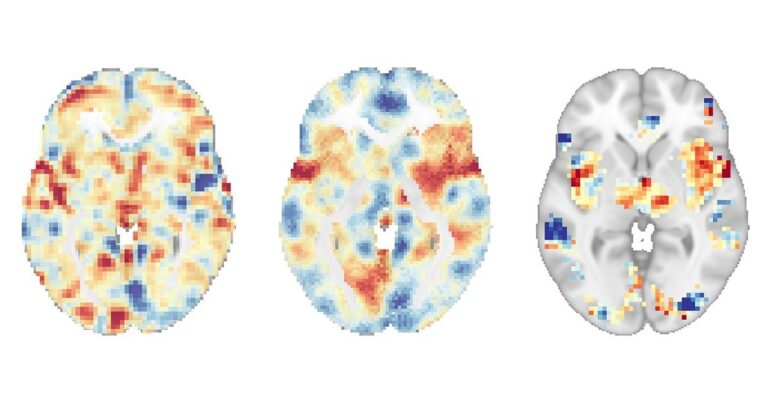TWH – Mindfulness plays a significant role in many Pagan spiritual practices, often aligning with the core values of being present, connected to nature, and deeply attuned to personal and spiritual energies. Many rituals often require a focused and mindful presence. Participants are encouraged to be fully aware of the energy they are raising, the elements they are calling upon, and the intentions they are setting. Whether it’s casting a circle or invoking deities, mindfulness ensures that every action in a ritual is intentional and sacred. New research says that these practices can produce effects that are not placebo when it comes to managing pain.
Pain is more than just a physical sensation; it is a complex, multifaceted experience shaped by various factors, including a person’s mindset and expectations. The placebo effect is a well-known example of how these expectations can influence pain perception. It occurs when a person’s symptoms improve due to an inactive treatment, purely because they believe it will work. For centuries, mindfulness meditation has been used to manage pain, and many experts assumed it worked by activating the placebo effect. However, a recent study has shattered this assumption, showing that mindfulness engages distinct brain mechanisms that provide real relief beyond placebo.

Brain scans show the three different neural signatures of pain response. Each signature corresponds to a particular brain mechanism for pain. (UC San Diego Health Sciences)
Published in Biological Psychiatry, the study from the University of California San Diego School of Medicine provides fresh insights into how mindfulness meditation affects the brain. The researchers compared the pain-reducing effects of mindfulness meditation, a placebo cream, and a “sham” mindfulness meditation in healthy participants. Their findings suggest that mindfulness meditation reduces pain in a way that is distinct from the placebo response, offering new hope for those suffering from chronic pain.
Using advanced brain imaging techniques, the team, led by neuroscientist Gabriel Riegner and anesthesiologist Fadel Zeidan, PhD, analyzed how each intervention influenced the brain. The study found that mindfulness meditation significantly reduced pain intensity and unpleasantness, while also decreasing brain activity associated with pain and negative emotions. In contrast, the placebo cream only reduced the brain activity linked to the placebo effect, without altering the underlying pain experience.

MJT Image
“The mind is extremely powerful, and we’re still working to understand how it can be harnessed for pain management,” said Zeidan, professor of anesthesiology and Endowed Professor in Empathy and Compassion Research at UC San Diego. “Mindfulness meditation is able to directly modify how we experience pain in a way that uses no drugs, costs nothing, and can be practiced anywhere.”
The study involved 115 healthy participants across two clinical trials. The participants were divided into four groups, each receiving a different intervention: guided mindfulness meditation, sham meditation (deep breathing), placebo cream (petroleum jelly), or a control condition where participants listened to an audiobook. To induce pain, the researchers applied a harmless but painful heat stimulus to the back of the participants’ legs. Brain scans were conducted before and after the interventions, and participants rated their pain intensity and unpleasantness on a scale from 0 to 10.
The mindfulness meditation group was trained over four 20-minute sessions to focus on their breath and observe their thoughts and emotions without judgment. The sham meditation group practiced only deep breathing, while the placebo group applied petroleum jelly, believing it to be a pain-relief cream.
The results were striking: while the placebo cream and sham meditation reduced pain, mindfulness meditation was significantly more effective. The analysis revealed that mindfulness meditation and placebo activated entirely different brain processes.
Zeidan explained that the assumption has long been that the placebo effect overlaps with the brain mechanisms activated by active treatments. “These results suggest that when it comes to pain, this may not be the case,” he said. “Mindfulness meditation appears to be a direct intervention for chronic pain, rather than just engaging the placebo effect.”
Chronic pain affects millions of people worldwide, and many of the current treatments involve medications with side effects or the risk of addiction. The study’s findings could have profound implications for developing non-pharmacological treatments that harness the power of mindfulness.
In modern medicine, therapies are generally considered effective if they outperform placebo. This study not only shows that mindfulness meditation outperforms placebo, but it also demonstrates that mindfulness engages different brain pathways. This distinction could pave the way for more effective and accessible pain treatments.
However, Zeidan and his team acknowledge that more research is needed to demonstrate these effects in people with chronic pain, rather than in healthy participants. The next step is to explore how mindfulness can be adapted and applied in clinical settings to benefit people suffering from ongoing pain conditions.
The study’s results support the growing body of evidence suggesting that mindfulness meditation offers real, measurable benefits for pain relief. By understanding the distinct brain mechanisms underlying mindfulness, researchers hope to develop interventions that are not only more effective but also more accessible to people dealing with various health conditions.
“Millions of people are living with chronic pain every day, and there may be more they can do to reduce their pain and improve their quality of life than we previously understood,” said Zeidan. “We are excited to continue exploring the neurobiology of mindfulness and how we can leverage this ancient practice in the clinic.”
In the long term, mindfulness meditation could become an integral part of pain management, offering a drug-free, cost-effective solution for individuals seeking relief from chronic pain. As this study highlights, the mind is indeed a powerful tool in the battle against pain—far more powerful than a placebo.
The Wild Hunt is not responsible for links to external content.
To join a conversation on this post:
Visit our The Wild Hunt subreddit! Point your favorite browser to https://www.reddit.com/r/The_Wild_Hunt_News/, then click “JOIN”. Make sure to click the bell, too, to be notified of new articles posted to our subreddit.